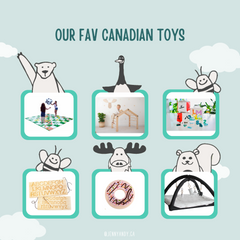
This age may be a difficult age to handle. You may find that your four-year-old is now a big ball of energy with increased drive, bossiness, belligerence, and out-of-bounds behaviour. Four-year-olds may also enjoy using inappropriate words and love to see how you react to them.
Although she may seem to be chasing off in all directions at once, she’s still learning from all of these experiences. Don’t worry, eventually it will get better and slowly, but surely, a more confident, calm child will emerge the next year.
Keep in Mind
Keep in mind that the actual age when a typically developing child reaches a milestone really can vary. Each child develops in their own unique way, so there's no need to worry unnecessarily if your child isn't hitting a milestone right away, especially if your child is hitting most milestones in other domains.
That being said, you are your child's best advocate. If there is an issue, it's always best to act early, so if you have any concerns about your child's development, please speak with your pediatrician.
Social and Emotional Milestones

By four years, your child should have an active social life filled with friends. He may even have a “best friend”. Take the initiative to encourage your child’s growing relationships and have him invite friends over. It’s important for him to “show off” or introduce his home, family, and possessions to other children. This will help him establish a sense of self-pride and confidence.
It’s also important to recognize that at this age, his friends aren’t just playmates, but have an active influence in his thinking and behaviour. He now realizes that there are other values and opinions besides yours and may test this discovery by demanding things you’ve never allowed him before. Just know that some sassiness can be a positive sign that he’s learning to challenge authority and test the limits of his independence. Your child still has an extremely simplified sense of morality, and so when he obeys rules rigidly, it’s not necessarily because he understands or agrees with them, but more likely because he wants to avoid punishment.
Your four-year-old’s fantasy life will remain very active. However, he’s now learning to tell the difference between what’s real and what’s not and he may move back and forth between the two without confusing them as much.
At age four or five, your child may begin to show an interest in basic sexuality, both his own and that of the opposite sex. He might ask the famous question “where do babies come from?” and about the organs involved in reproduction. He might want to know more about the differences in girls’ and boys’ bodies. When confronted with these questions, answer them in a direct and simple way using the correct terminology. A four-year-old may not need to know the details about intercourse, but he should feel free to ask questions and know he’ll get a direct and accurate answer.
Many children at this age:
- Role play in pretend play (i.e. taking on parent, doctor, or dentist roles) Would rather play with other children than alone
- Want to please friends
- Want to be like their friends
- Are able to distinguish fantasy from reality
- Begin to be aware of sexuality
Language & Communication Milestones

Your child’s language at age four will begin to blossom. She’ll be able to pronounce most of the sounds in the English language with a few exceptions (/f, v, s, z/ may still be difficult and she may not fully master /sh, l, th, r/ until age six).
Your preschooler’s vocabulary will have grown to around 1500 words now and will grow by another 1000 over the course of the year. She’ll now be able to tell elaborate stories and will be able to tell you about things that happened to her, things she wants, and also about her dreams and fantasies.
Many children at this age:
- Speak in sentences of more than five words
- Use future tense
- Tell longer stories
- May begin to recognize sight words
Cognitive Milestones

Your four-year-old is starting to explore lots of basic concepts that will be taught in more detail at school. For example, he’ll now understand that the day is divided into morning, afternoon, and night and that there are different seasons. By age four to five, he’ll understand basic counting, the alphabet, size relationships, and the names of geometric shapes.
Be sure to respect and encourage any special interests or talents your child may have. This will help open his horizons even further and encourage a joy of learning so that he will be self-motivated when his formal education begins.
Many children at this age:
- Can count ten or more objects
- Concept of time improves even more
- Play board games and card games
- Remember parts of a story
- Can tell you what they think will happen next in a book
Movement Milestones

Your preschooler now has the coordination and balance very close to an adult’s. However, her motor skills will be way ahead of her judgement, so you’ll need to remind her to wait when she runs ahead or hold your hand when crossing the street.
Her coordination and ability to use her hands are almost fully developed too. She’s now becoming able to take care of herself and brush her teeth, get dressed with little help, and may be able to tie her shoes.
Because of this growing control over her hands, arts and crafts in general are becoming more exciting for her now. When she draws, she’ll probably take more care and attention and decide in advance what she wants to create and then go ahead with it. His people drawings may have legs sticking out of the head, but they’ll have eyes, a nose, and a mouth and represent people to your child.
Many children at this age:
- Can hop and somersault
- Can stand on one foot for ten seconds or more
- Can draw a person with body
- Copy triangle and other geometric patterns
- Can print some letters
- Colour mostly within the lines in a colouring book
Sensory Milestones

Three-year-olds are frequently picky eaters, and may continue into their fourth year, and your child may be more vocal about her food preferences. She might be more insistent about refusing to eat certain foods. Her nutritional needs are similar to what it was last year, but she may have unpredictable emotional responses to the foods put in front of her. Try to maintain a well-balanced meal as often as possible and present enough wholesome choices to keep her healthy.
At this age, a common nighttime issue is night terrors. During a night terror, your child will be in bed appearing to be awake and upset, maybe screaming and thrashing, eyes wide open and terrified, but he won’t respond to you. He is neither awake nor having a nightmare.
This can be disturbing as a parent because the child looks and acts so differently from his usual self. The only thing you can really do at this point is hold your child to protect him from hurting himself and reassure him softly. Eventually, he’ll settle down and go back to sleep. The next morning, he will remember nothing about the occurrence.
Many children at this age:
- May be more vocal about food preferences
- May have night terrors
Want a handy milestones checklist all in one place?
Download our Comprehensive Developmental Milestones Checklist PDF for free ☑️!
Developmental Milestones By Age
Sources:
- American Academy of Pediatrics. Caring for Your Baby and Young Child, 7th Edition: Birth to Age 5, Fifth Edition. 2009.



